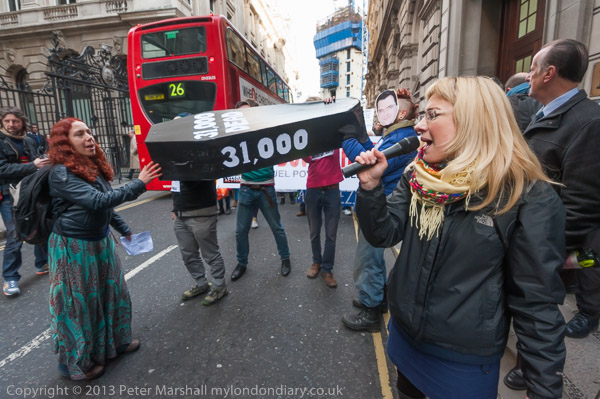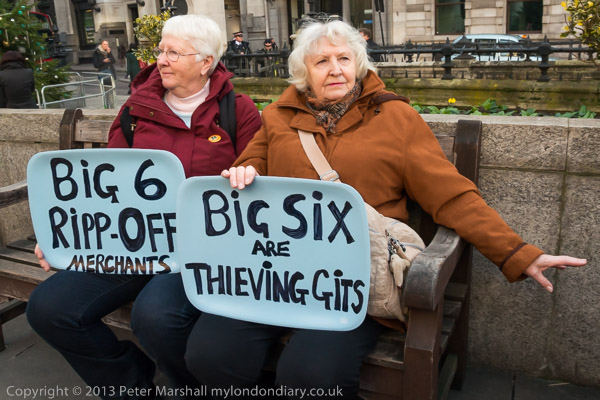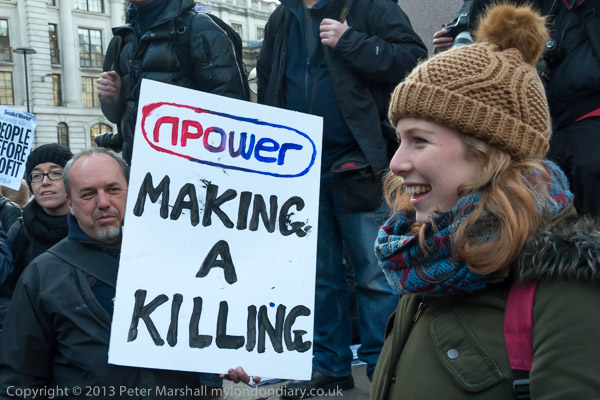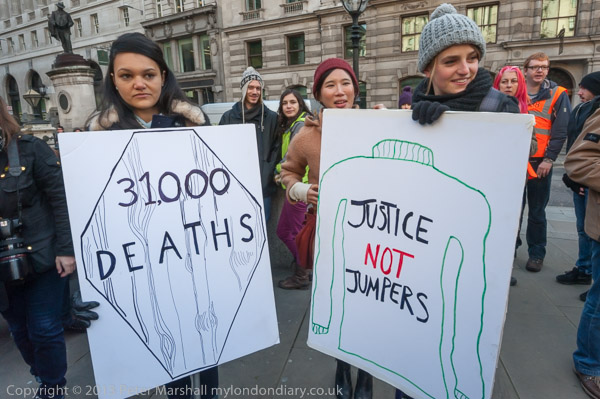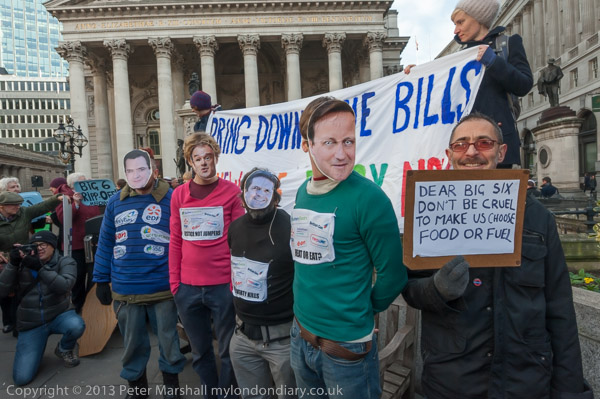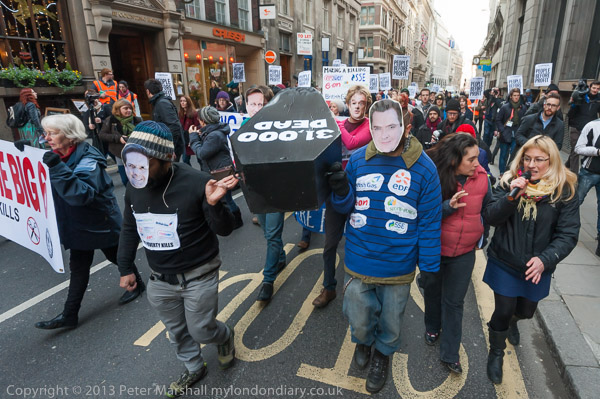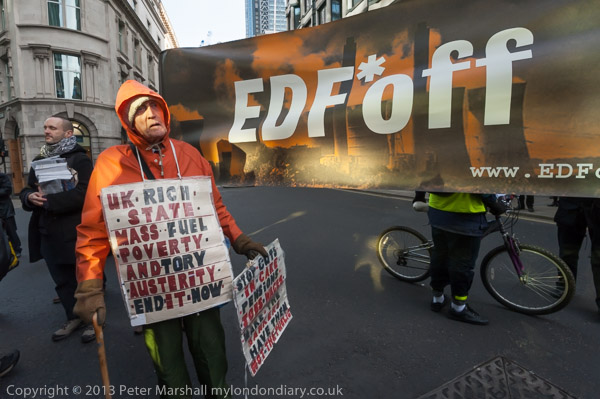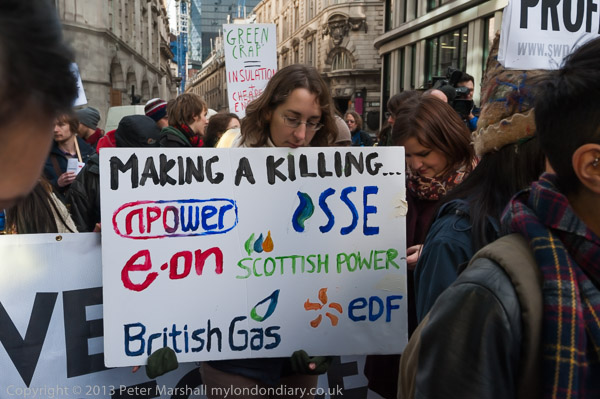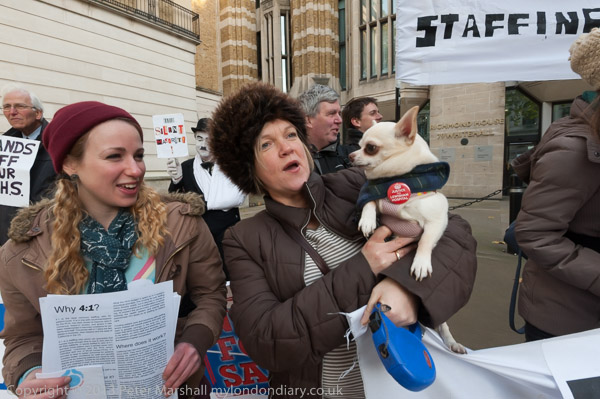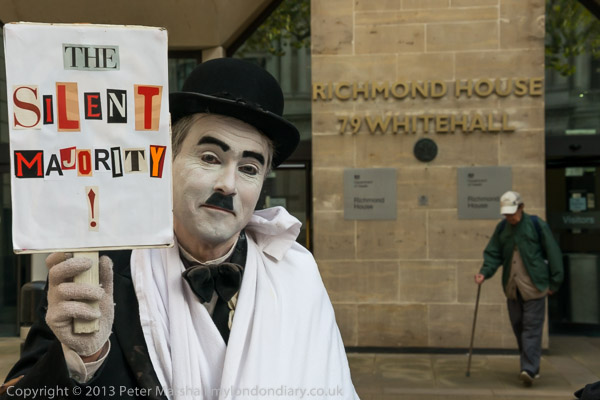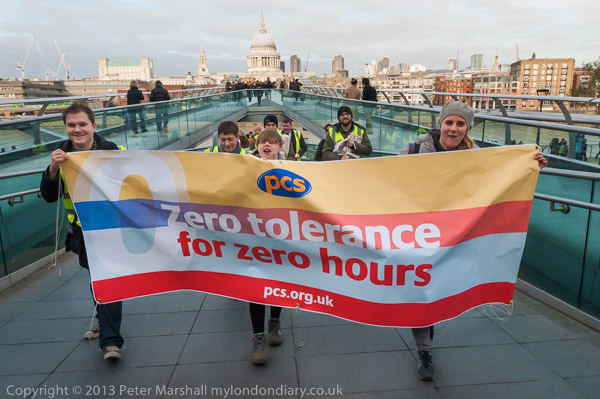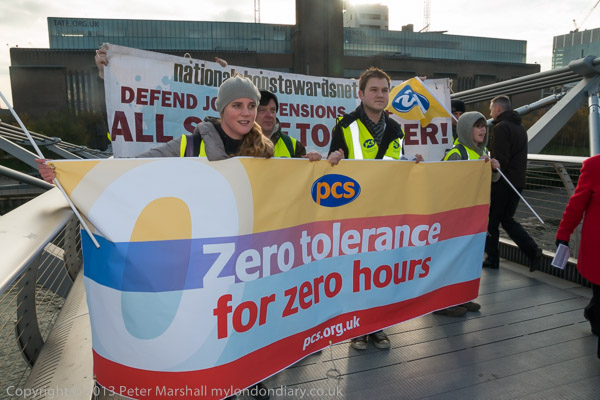Whittington, Syria and St Patrick – Saturday 16th March 2013 saw me travelling around London to cover three events, starting at a march against hospital cuts, then a march supporting the Syrian revoltuion on its second anniversary and finally an Irish parade on the day before St Patrick’s Day.
Whittington Hospital March Against Cuts – Highbury & Islington
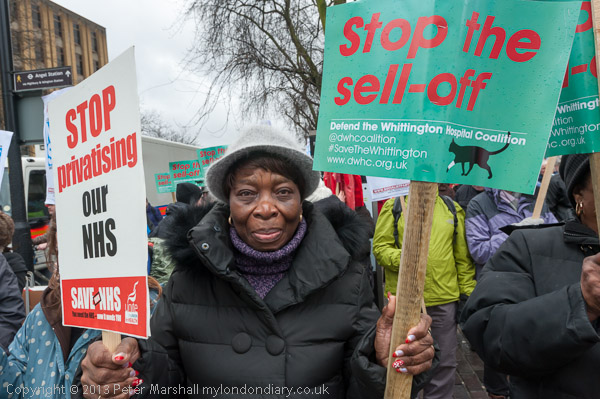
Dick Whittington, more formally Sir Richard Whittington (c1354 – 1423) was four times Lord Mayor of London and did a lot for the medieval city, including financing drainage systems in its poorer areas and setting up a hospital ward for unmarried mothers and leaving his considerable fortune to set up a charity which still 600 years later helps those in need.
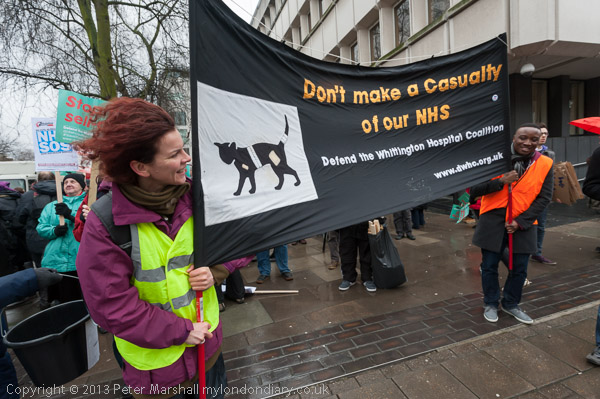
He made his fortune as a mercer, importing luxury fabrics such as silk and velvet and exporting English woollen cloth and later as a money lender to wealthy noblemen and kings. It isn’t clear if he ever had a cat, but the legend about him fleeing London with one and turning back when he heard Bow Bells from Highgate Hill first made it to print in 1612.
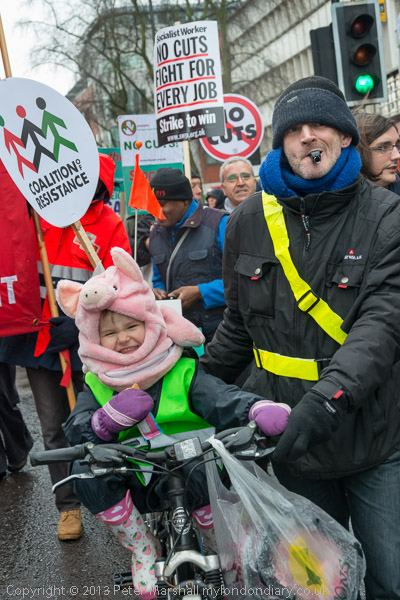
The Whittington Stone was placed at the foot of Highgate Hill in 1821, though earlier it had been the base of a cross there; it only gained a cat on top in 1964. But Whittington’s name is remembered in a number of pubs across the country, including The Whittington & Cat on Highgate Hill, which closed in 2014. Islington Council and local residents fought to keep it, and prevented its demolition in 2012 by declaring it to be an asset of community value, but it became a flooring shop.
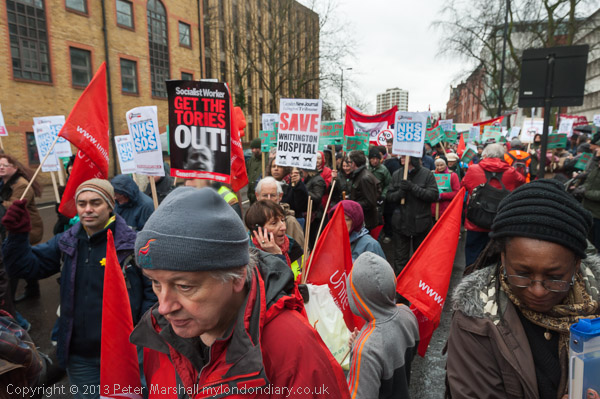
More importantly Whittington’s name became that of the major hospital formed when earlier hospitals on three nearby sites were amalgamated when the National Health Service was formed in 1948.
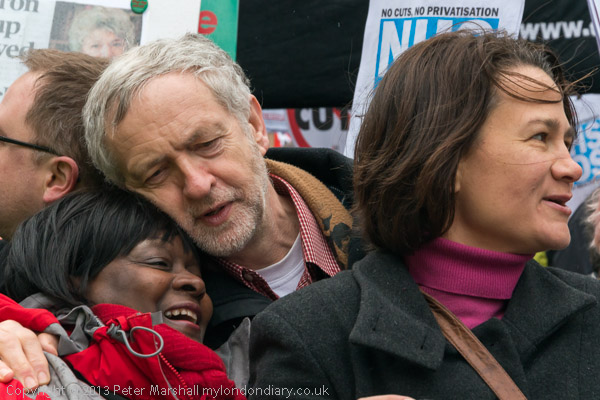
Three years before this march, huge local oppositin had forced the cancellation of plans to end Accident and Emergency, Paediatrics, Maternity and Intensive Care at the Whittington Hospital, but now it was threatened again by a new hospital trust with plans to reduce maternity services, close wards, provide fewer beds for the elderly, cut 570 jobs privatise some services and sell off around a third of the site, closing all onsite accommodation for nursing staff.
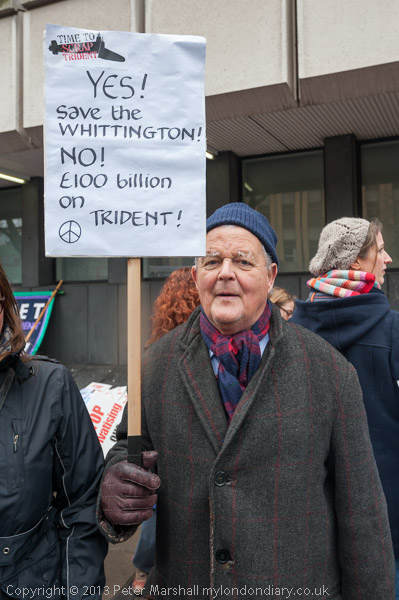
I met several thousand protesters close to Highbury & Islington Station where they were preparing to march to a rally outside the hospital. Among those marching were local MPs, Green Party Leader Natalie Bennett, Bruce Kent and various celebrity supporters of the campaign, as well as the truly remarkable Hetty Bower, born in 1905, who became a pacifist at the time of the ‘Great War’, and took part in the 1926 General Strike.
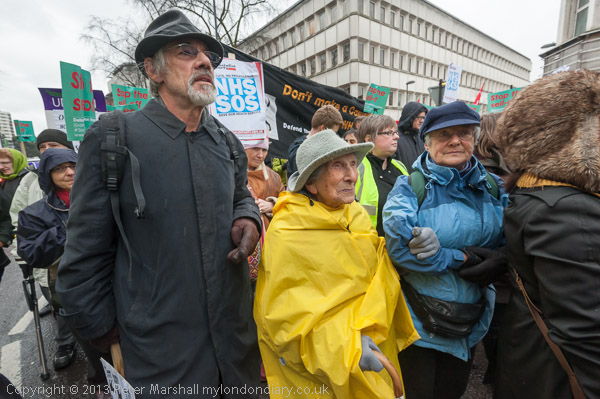
You can read more about the event and see my pictures of many of the marchers on My London Diary. I left the march shortly after it started to go to my next event.
Whittington Hospital March Against Cuts.
Syria – Two Years Fight for Freedom
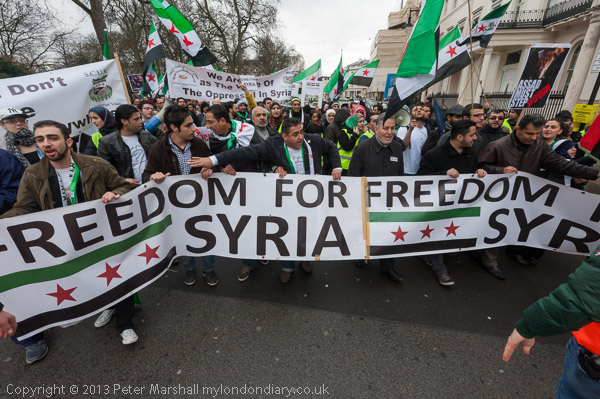
I arrived outside the Syrian Embassy in Belgrave Square while the rally before the march was taking place with members of the Syrian Community in Britain speaking.

Most of the speeches and chanting were not in English, and the Free Syria campaign appears to have little support from the British left who might have been expected to support their freedom fight. There were a few protests at the start, but often confused and mainly opposing any involvement in Syria by British forces.
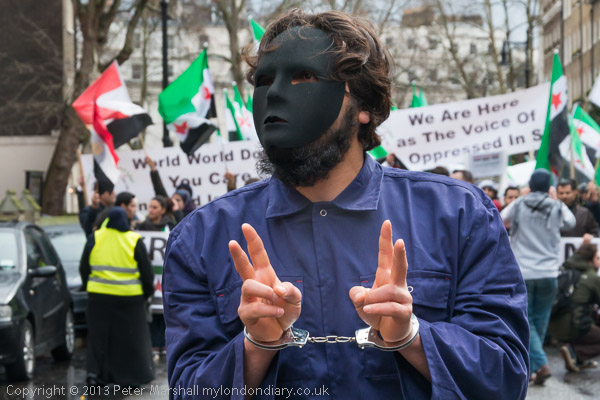
The Syrian revolution against the Assad regime had also received little actual support from the UK Government and US support seemed halfhearted. When Assad began using chemical weapons against the Syrian rebel held areas there was strong condemnation but no action and any threats soon melted away once Russia became involved in supporting Assad.

One of the placards carried by marchers included a question which now seems particularly relevant in view of what has been happening in Gaza: ‘Hey World, How Many Kids Should Be Killed Before You Do Something?’

I walked with the marchers on their way to Downing Street as far as the Hyde Park underpass where it looked impressive as it made its way under the Hyde Park underpass, fairly densely packed and with flags waving it spread wide across the road, stretching back into Wilton Place over 200 yards away. Then left for Willesden Green.
Syria – Two Years Fight for Freedom
St Patrick’s Parade Brent – Willesden Green

For several years I had enjoyed the Brent St Patrick’s Day parade, sometimes going together with friends including John Benton-Harris who had photographed St Patrick’s Day here and across the USA as well as in Ireland over many years. The parade in Brent, usually on the day itself, had always seemed rather more authentically Irish than the larger London parade held on the nearest Sunday since Ken Livingstone introduced it in 2002 and I made some pictures.

Brent Council had a fine record of supporting cultural events celebrating its various communities including the Irish, but with government cuts since 2010 no longer had the funds to do so.
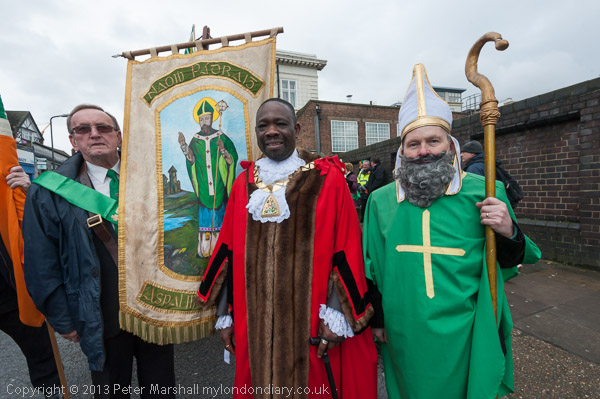
This year too, the main London event was taking place the following day, St Patrick’s Day itself, so the Brent event was on the day before. So the crowds were rather thinner than in previous years, and the poor weather may have put some off too.

More pictures at St Patrick’s Parade Brent.
Flickr – Facebook – My London Diary – Hull Photos – Lea Valley – Paris
London’s Industrial Heritage – London Photos
All photographs on this page are copyright © Peter Marshall.
Contact me to buy prints or licence to reproduce.
